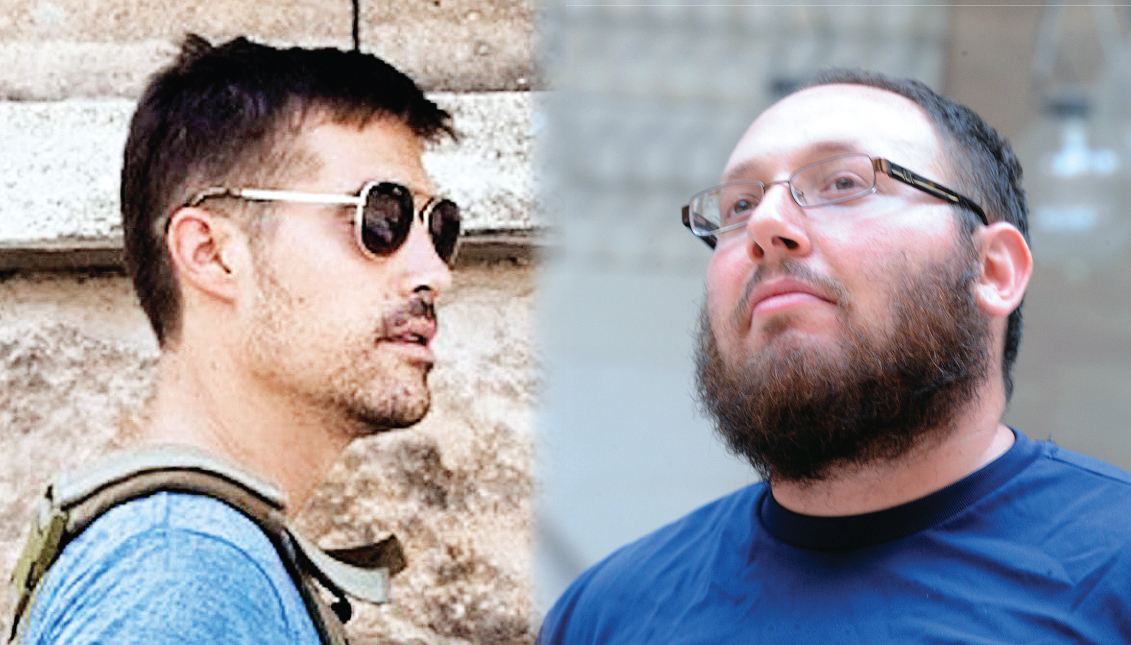
The soul of journalism
MORE IN THIS SECTION
Yesterday, American journalist Steven Sotloff was reported killed after a video was released of an ISIS militant beheading the 31-year-old journalist.
Forty-year-old journalist Jim Foley suffered the same fate a mere two-weeks before. To say the community of American journalists is reeling is to understate. Many of us haven’t been this cognizant of the dangerous nature of our profession since the footage of ABC journalist Bill Stewart being killed by Somoza’s National Guard in Nicaragua in 1979 was played and replayed on TV.
On Tuesday, Sept. 2, a group of journalists, together in a twitter chat run by Muck Rack, wondered collectively about the cost of telling stories, particularly the hard and hidden stories that put journalists like Sotloff and Foley in danger.
Muck Rack asked Ron Haviv, a photojournalist who has been taken hostage three times, about what prompts this vocation: “You’ve decried the ‘adrenaline junkie’ stereotype of conflict journalists. What truly motivates you?”
“I have been lucky to see my work have impact from the beginning... To be part of a process to affect even one person for the better is motivation,” Haviv responded.
That is much of what drives journalists from Syria to Nicaragua to Philadelphia — the understanding that the stories to uncover, the photos to capture, the video to reveal, are all part of a history that would not be recorded — sometimes not even admitted — without the witness and scrutiny of the press. And that this has an impact beyond mere image, mere words.
Many of us Latinos who immigrated to the United States know the vital role journalism plays — by virtue of having grown up in countries where the free press was suppressed. Only the work of dogged, fearless and intrepid journalists brought us the truth hidden beneath “the official stories” of repressive governments.
It is easy for us who espouse opinion — be it from an editorial or an opinion column or a blog — to be audacious. It is easy for us to brush off the moments when some ninnyhammer deliberately mischaracterizes our words to fit his agenda, or spews accusation in virtual (but largely impotent) sound and fury.
What is hard is the audacious work reporters and journalists do on the streets — be it Philadelphia or northwestern Syria — bringing to light stories and images that the rest of us need to read and see. What is hard is the audacity in recording and amplifying the voices that no one else wants to hear — or wants anyone else to hear. What is hard, and audacious and necessary is the work that draws on the very soul of journalism.
In a Philadelphia where media organizations have long been involved in high-profile ownership battles and internecine bickering, and in a nation where (according to Pew Research Center) reporters make 65¢ for every dollar made by PR specialists, it is easy to lose sight of the fact that journalism’s soul is its humanism.
“(Journalism) shows the humanity amongst the rubble and politics,” tweeted journalism student Deanna Cheng during Tuesday’s Muck Rack chat.
It “relies on human compassion and intuition,” added reporter Neeti Upadhye in a tweet.
There is no reason to do this work, it turns out, unless you are willing to put the human story front and center of every story.
Foley and Sotloff are not the only journalists to have paid with their lives for their vocation. Reporters Without Borders’ annual tally stands at 48 journalists and 12 netcitizens and citizen journalists killed; 177 journalists and 188 netcitizens imprisoned so far in 2014, for telling the stories someone doesn’t want the rest of us to hear.
“One of the most important roles we play is raising awareness of what is being done or not done in our names ... None of us are forced to do this. We can make a better living doing something else.”
— Ron Haviv, photojournalist
We, the public who benefit so much from the work of journalists; we, their colleagues and editors who understand the importance of covering every community with both heart and intellect; We, the media organizations that send journos out to get stories, must all step up to the plate and offer the protections they need.
From media organizations financing hostile environment training before a journalist heads out to a war zone, to a national conversation about the government’s no-ransom policy, here, too, we must be willing to put the human story front and center.






LEAVE A COMMENT:
Join the discussion! Leave a comment.